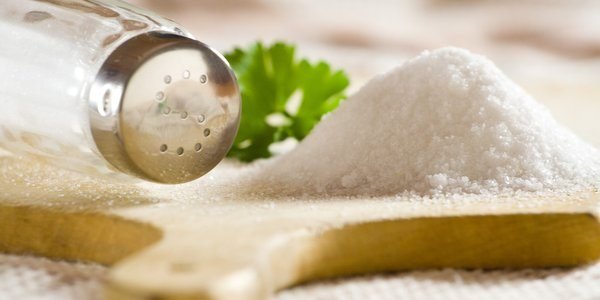Significant restriction of salt intake is not good for health

Another study has recently been published that adds fuel to the fire about what is recommended to prevent cardiovascular disease and reduce mortality by reducing dietary sodium intake.
On January 19, 2015, a publication appeared in the journal JAMA: Internal Medicine stating that elderly people consuming less than 1,500 mg of dietary sodium per day did not experience more lower risk of cardiovascular disease or death over a 10-year period compared to their peers whose diets included 1,500-2,300 mg of sodium per day.
Despite the fact that the evidence of harm from overly strict sodium restriction in old age has failed, according to the authors of the present study, the data they obtained are sufficient to recommend that elderly people should not be too strict in control of sodium intake.
It should be noted that the US Centers for Disease Control and Prevention’s (CDC) 2010 Dietary Guidelines for Populations, which prescribe limiting dietary sodium intake to 2,300 mg for the age group 18-51 years and up to 1,500 mg for persons aged 51 and older, for African Americans and patients with arterial hypertension, diabetes mellitus or chronic kidney disease.
In Bulgaria, according to the Recommendations for a healthy diet for the population aged 18-65, sodium intake should be limited to 2000 mg per day or 5 grams of sodium chloride, which is 1 teaspoon of table salt per day.
The American Heart Association is even more radical, recommending that all Americans without exception aim for a target level of no more than 1,500 mg of sodium per day.
At the same time, in 2013, specialists from the US Institute of Medicine /Institute of Medicine, IOM/ made a systematic review of the available literature and came to the conclusion that at the moment there is not enough convincing evidence to confirm the fact that it is reducing sodium intake even to levels of 1500-2300 mg per day is beneficial.
The latest publication from January 2015 refers to the results of the 10-year follow-up of 2,642 elderly participants in the Health, Aging, and Body Composition, Health ABC study of age from 71 to 80 years.
The average salt intake in the Health ABC study was 1 teaspoon per day of table salt, or approximately 2,300 mg of sodium per day.
With the help of a survey, which included questions about the most frequently consumed food products, it was established that part of the elderly participants /291 people/ consumed sodium in an amount less than 1500 mg/day, another part / 779 participants/ – in the range between 1500 and 2300 mg per day, and the remaining 1572 people an amount of more than 2300 mg per day.
As mentioned above, researchers did not find better health in people who consumed less than 1,500 mg of sodium per day.
This refers to a possible reduction in mortality, morbidity from cardiovascular disease and heart failure. The results did not differ between participants with baseline arterial hypertension and those without this disease, and also between men and women, Caucasians and representatives of the Negroid race. But there was a slight increase in mortality over a 10-year period in participants who consumed less than 1,500 mg of sodium.



